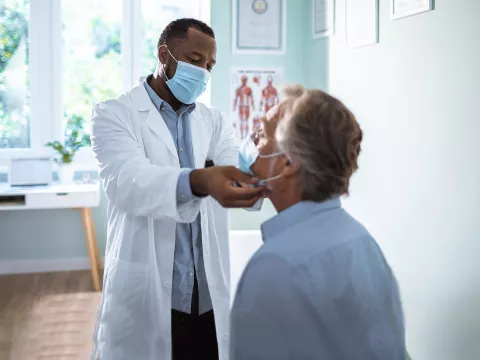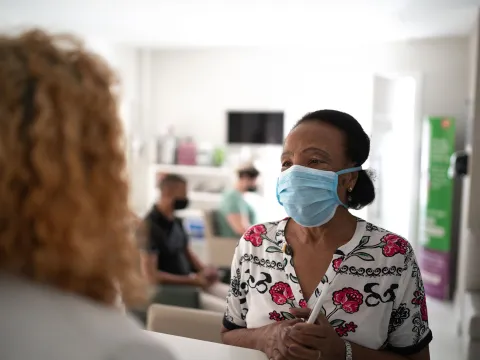- AdventHealth

Inflammatory bowel disease, or IBD, affects about 1.6 million Americans who are usually diagnosed before the age of 35. This painful, and potentially life-threatening, chronic condition is a blanket term that’s used to describe two specific conditions: Crohn’s disease and ulcerative colitis. Both have similar symptoms and the treatment options overlap. To learn more about IBD we spoke with the Director of the IBD Center at AdventHealth Center for Interventional Endoscopy, Uday Navaneethan, MD.
Symptoms of IBD, Prevention, and Who’s at Risk
“If you have symptoms of blood in the stools, persistent diarrhea, weight loss, or mucus in the stool, you need to have it checked out with an IBD specialist / gastroenterologist,” says Dr. Navaneethan. “Those with family members who have IBD are at a greater risk, and a combination of genetic and environmental factors play a role. As many as 162 genes have also been implicated so it can run in families because of this genetic reason.As many as five to 20 percent of patients have a family member with IBD.”
“Diet is also a big factor and a Westernized diet plays a large role. We don’t have good studies to show this; however, there’s rising incidence of IBD in the Western world with Westernized diet and the countries in Asia and Africa are also seeing an increase due to Westernized diet. So, the use of processed foods and GMO foods may play a role, although we do not know this for sure.
Smoking also worsens the condition and increases the risk of Crohn’s disease, which is a type of IBD. Using antibiotics early in life can also increase the risk. Additionally, if you have an autoimmune predisposition such as thyroid problems, you may be at increased risk.”
Treatment for Crohn’s Disease and Ulcerative Colitis
IBD is a chronic condition and there’s no cure, but with proper treatment, the right precautions, and lifestyle changes, you can live a normal life free of symptoms. Dr. Navaneethan explains, “There’s no cure for IBD, however with the current treatment options you have, you can have a normal quality of life. The medications depend on what symptoms you have. If you have mild symptoms, you can be treated with oral medications but if the symptoms are severe you may need medications called biologics, which are injectable medications given anywhere from once every 2 weeks to once every 2 months to control your symptoms.”
Oral medications such as mesalamines are the simplest option to start, followed by Entocort. If you don’t respond to any of these medications, you can use biologics injected once every 2 weeks to 2 months. These medications have a variety of side effects and your doctor will do periodic labs such as blood counts, liver tests, tests for TB and Hep B. Medicines such as steroids along with biologics can reduce the time of flare-ups of symptoms. There’s a small percentage of people, less than five percent, who can eventually live off of meds, but the remainder of patients need them for life.
Additionally, some patients have tried acupuncture and found some success in reducing symptoms.
Other Considerations and Precautions
- Once you’ve been diagnosed with IBD, you should limit fiber in your diet. A low fiber diet will help with your symptoms and avoiding raw salads and nuts and limiting red meat may also help.
- If you're on an immunosuppressant, you're at a slightly higher risk of infection and you should make sure that you get a flu vaccine and take pneumovax to decrease this risk.
- IBD can affect pregnancy, including pre-term birth, still birth, and small-for-gestational-age babies. You should make sure the disease is in remission before you become pregnant.
- 50 percent of patients will require at least one surgery in their lifetime. However, with close follow-up with an IBD specialist, you can decrease this risk.
- IBD if untreated can increase the risk of colon cancer and surgeries in your abdomen which may require a permanent colostomy bag.
- If you’ve been diagnosed with IBD you should get a colonoscopy every one to two years.
- Stress can also increase the severity and frequency of flare-ups.
Getting the Care You Need
If you’re concerned about your symptoms or received an IBD diagnosis, we’re here to support you. For more information or to make an appointment with a specialist, please visit our site or call Call407-303-6611.





